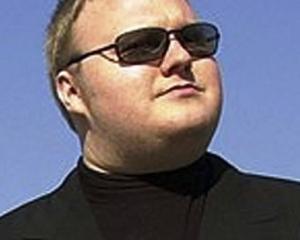
In a bail decision released yesterday, Judge David McNaughton said the official showed how someone could slip abroad by obtaining false passports.
An affidavit presented in closed court warned of the "porous'' nature of New Zealand's borders if Dotcom tried to flee by boat or plane from outside the main centres.
It also detailed the "mechanics of organising travel to Australia or the Pacific Islands by small aeroplane, yacht or commercial vessel''.
It emerged yesterday that Judge McNaughton was also worried Dotcom could use "criminal connections'' to obtain false passports and slip out of the country.
However, Dotcom's lawyer, Paul Davison, QC, rejected the suggestion his client has access to criminal associations and said he had no intention of leaving the country.
Dotcom, 37, will fight the bail decision in the High Court, while his three co-accused will find out today if they can be bailed.
Dotcom, Bram van der Kolk, Finn Batato and Mathias Ortmann were arrested on Friday in a raid by armed police on Dotcom's $30 million mansion in Coatesville. United States authorities allege they are part of a "mega conspiracy'' that breached copyright laws estimated to have cost the rightful owners $500 million.
After hearing an application for bail on Monday, Judge McNaughton yesterday ordered Dotcom to be held behind bars, until an extradition hearing on February 22, because he considered him a serious flight risk.
The judge said Dotcom could explain having three passports in three different names but he had no qualms about changing his identity, and had been operating at least one bank account under another name just before his arrest.
"The applicant's unlawful possession of the firearm is another factor which weighs the balance. It suggests a level of criminality which to my mind could easily extend to exploiting criminal connections to obtain false travel documents and leave the country undetected.''
The judge said that even though making Dotcom wear an electronic bracelet, imposing strict bail conditions and banning him from using a computer should prevent him planning an escape, "with sufficient determination and financial resources flight risk remains a real and significant possibility''.
He could not discount the scenario suggested by the Crown that Dotcom could take whatever money he could and run to Germany - safe from extradition and away from the "full weight'' of the US Government.
The judge's decision contained material prepared by the FBI, from a 2007 Skype conversation, where van der Kolk and Ortmann discuss what Dotcom would do if he was caught.
Van der Kolk purportedly wrote: "... if the s*** really hits the fan ... would he grab the last little bit of money and take off ... he's good at that.''
Crown lawyer Anne Toohey said the mistrust shown by Dotcom's associates was well founded and an indicator of what he could do on bail.
However, Mr Davison said it was an old conversation that should not be taken out of context. He said Dotcom wanted to let the legal process take its course and did not want to be a fugitive. In explanation for having a gun without a licence, Dotcom said he was concerned for his safety and that of his family.
Mr Davison told the judge, in closed court, that Dotcom's wife was from the Philippines where kidnapping of wealthy people was common so his possession of two guns and use of a bodyguard were in response to that threat.
After bail was denied yesterday Mr Davison spoke to his client, who he said was `disappointed''. He told reporters the judge agreed with much of what he submitted but there was disagreement about the flight risk.
On Dotcom's alleged links to criminals, he said: "There is no evidence whatsoever that he has any criminal connections or associations at all, I don't know where the judge got that idea from.''
He confirmed Dotcom had health issues that were being addressed.
- Andrew Koubaridis of the New Zealand Herald









